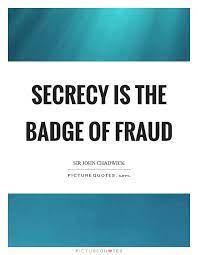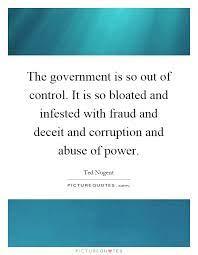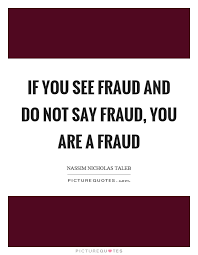Fraud
Save Us from Developers and Power Outage-NASU UCH
- By solomon2day
- On 16/11/2022
- Comments (0)
- In News
 Workers in the University College Hospital(UCH) have called on Federal Government to rescue them from the fierce claws fo questionable estate developers.
Workers in the University College Hospital(UCH) have called on Federal Government to rescue them from the fierce claws fo questionable estate developers.
The workers made this through the chairman of the Non-Academic and related institutions Staff Union(NASU) UCH,Comrade Kehinde Abiona.
''Housing is a very germane factor, but over time, workers have run into trouble in the quest to secure affordable homes. The government should reduce workers from the grip of these dubious developers.
This development is disturbing. There are several advertisements on the radio for the sale of houses and land. Developers are springing up on a daily basis. The government and relevant regulatory bodies must check their activities. They use cows and bags of rice as baits to attract workers. There is this case of one of our members who paid for the form and was promised to come back for the plot of lad and but till this moment no allocation. In addition, most of these developers introduce hidden costs when an individual has registered with them. My advice to the developers is for them to come to the table with open minds. I count the hidden costs as deceit. Another issue is the documents on the land. They would always tell you they are being processed. None of them have been brought to justice. Only God will save us.'' Comrade Abiona stated.
The workers also lamented the poor state of electricity supply in the country, saying, ''the issue of electricity supply is also a great challenge to the management. Diesel has risen to between N750.00 and N800.00 per litre. This hospital runs on diesel. Electricity is not always available and this has put services into problems. Management is handicapped. The management is groaning under the debts to Ibadan Electric Distribution Company. The debts have gone beyond N50 million, even though electricity is not regular. This affects service delivery. They schedule and rechedule surgeries and operations because of the irregular supply of electricity. However, there are critical lines which are funded at all costs. These lines are the Emergency and Intensive Car Unit. These units run 24 hours round the clock.''
Zambia Anti Graft Agency Arrests Former Treasury Secretary and One other for Fraud
- By solomon2day
- On 05/05/2022
- Comments (0)
- In News
The Zambia Anti-Corruption Commission has arrested the country's former Secretary to the Treasury Fredson Yamba and one other for fraud to the tune of US$33million.
Mr. Yamba, 62, of Lusaka was arrested and charged with one count of willful failure to comply with applicable law and procedure relating to procurement contrary to Section 34 (2) (b) of the Anti-Corruption Act No. 3 of 2012.
Read-Helplessness in the Face of Dirt
In 2018, Yamba did not follow the procedure when he authorized an advance payment of US$33, 750,000.00 to China Energy Engineering Group – Hunan Electric Power Design Institute Co. Ltd for the construction of FTJ Chiluba University in Mansa and Kasama under the Ministry of Higher Education. The amount was paid to the contractor but till the present moment, construction is yet to commence.
-Legalizing Crime and Criminality
Also arrested alongside Yamba is Joseph Phiri, an architect at the Ministry of Higher Education, for attempting to fraudulently facilitate a payment amounting to US$ 29,186,169.09 to China Energy Engineering Group–Hunan Electric Power Design Institute Co. Ltd.
-Landlords and Tenants Associations, Crime and Criminality
Mr Phiri, 57 of Lusaka was charged with one count of fraudulent facilitation of payment contrary to section 34 (2) (a) as reading together with section 40(2) of the Anti-Corruption Act No.3 of 2012.
Phiri, attempted to fraudulently facilitate payment to China Energy Engineering Group–Hunan Electric Power Design Institute Co. Ltd by signing and issuing an Interim Payment Certificate No. 2 valued at US$ 29,186,169.09 with an inflated sum of US$7,578,772.41 for goodstha were not supplied.
Nigerian citizen pleads guilty to COVID-19 unemployment fraud on Washington and 17 other states
- By solomon2day
- On 05/05/2022
- Comments (0)
- In News
Obtained personal identifying information of more than 20,000 Americans to submit fraudulent claims for more than $2 million in federally funded payments since 2017
Tacoma – A 45-year-old resident of Lekki, Nigeria, pleaded guilty today in U.S. District Court in Tacoma to wire fraud and aggravated identity theft for using stolen identities to claim hundreds of thousands of dollars in pandemic-related unemployment benefits, announced U.S. Attorney Nick Brown. Abidemi Rufai has been in custody since his arrest at New York’s JFK airport in May 2021. At the time of his arrest, Rufai was the Special Assistant to the Governor of Nigeria’s Ogun State.
Read-Helplessness in the Face of Dirt
According to the plea agreement, since 2017, Rufai unlawfully obtained the personal identifying information for more than 20,000 Americans to submit more than $2 million in claims for federally funded benefits under a variety of relief programs. The various agencies involved paid out more than $600,000.
The largest amount of fraud was committed against the Washington State Employment Security Department, which paid out $350,763 in fraudulent pandemic unemployment claims to accounts controlled by Rufai. Rufai also submitted fraudulent pandemic unemployment claims in at least 17 other states.
-Legalizing Crime and Criminality
Rufai also defrauded the Small Business Administration (SBA) by attempting to obtain Economic Injury Disaster loans (EIDL) tied to the COVID-19 pandemic. Between April 8, 2020, and June 26, 2020, he submitted 19 fraudulent EIDL applications. SBA paid out $10,000 based on the applications.
Between 2017 and 2020, Rufai attempted to obtain more than $1.7 million in IRS tax refunds by submitting 675 false claims. The IRS paid out $90,877 on these claims.
-Landlords and Tenants Associations, Crime and Criminality
Rufai’s efforts to enrich himself with false disaster claims did not start with COVID-19. In September and October 2017, he submitted 49 disaster relief claims connected to Hurricane Harvey and Hurricane Irma. He filed $24,500 in false claims and was paid on 13 claims totaling $6,500.
Rufai has agreed to pay full restitution to the defrauded agencies.
-Law Enforcement: The Reactionary Approach
Wire fraud in relation to a presidentially declared major disaster or emergency is punishable by up to 30 years in prison. Aggravated identity theft is punishable two years in prison to follow any prison term imposed on another charge. Prosecutors have agreed to recommend no more than 71 months in prison. The recommendation is not binding on U.S. District Judge Benjamin H. Settle, who will determine the appropriate sentence on August 15, 2022, after considering the sentencing guidelines and other statutory factors.
This case was investigated by the FBI, with assistance from the Department of Labor Office of Inspector General, Internal Revenue Service Criminal Investigations, Department of Homeland Security Office of Inspector General, and the United States Small Business Administration Office of the Inspector General. The Washington Employment Security Department is cooperating in the investigation.
The case is being prosecuted by Assistant United States Attorneys Seth Wilkinson and Cindy Chang of the Western District of Washington.
-Government Workers-A Subject of Debate
On May 17, 2021, the Attorney General established the COVID-19 Fraud Enforcement Task Force to marshal the resources of the Department of Justice in partnership with agencies across government to enhance efforts to combat and prevent pandemic-related fraud. The Task Force bolsters efforts to investigate and prosecute the most culpable domestic and international criminal actors and assists agencies tasked with administering relief programs to prevent fraud by augmenting and incorporating existing coordination mechanisms, identifying resources and techniques to uncover fraudulent actors and their schemes, and sharing and harnessing information and insights gained from prior enforcement efforts. For more information on the department’s response to the pandemic, please visit https://www.justice.gov/coronavirus
Anyone with information about allegations of attempted fraud involving COVID-19 can report it by calling the Department of Justice’s National Center for Disaster Fraud (NCDF) Hotline via the NCDF Web Complaint Form athttps://www.justice.gov/disaster-fraud/ncdf-disaster-complaint-form
Source-FBI
Nigerian citizen charged with defrauding Washington State Employment Security Department of over $350,000
- By solomon2day
- On 18/05/2021
- Comments (0)
- In News
Arrested at NY airport on criminal complaint
Seattle – A Nigerian citizen was arrested Friday evening at JFK Airport in New York on a criminal complaint charging him with wire fraud for his scheme to steal over $350,000 in unemployment benefits from the Washington State Employment Security Department, announced Acting U.S. Attorney Tessa M. Gorman. Abidemi Rufai, aka Sandy Tang, 42, of Lekki, Nigeria, made his initial appearance Saturday May 15, 2021 in New York. He is scheduled for a detention hearing Wednesday.
“Since the first fraud reports to our office in April 2020, we have worked diligently with a federal law enforcement team to track down the criminals who stole funds designated for pandemic relief,” said Acting U.S. Attorney Gorman. “This is the first, but will not be the last, significant arrest in our ongoing investigation of ESD fraud.”
The criminal complaint alleges that Rufai used the stolen identities of more than 100 Washington residents to file fraudulent claims with ESD for pandemic-related unemployment benefits. Rufai also filed fraudulent unemployment claims with Hawaii, Wyoming, Massachusetts, Montana, New York, and Pennsylvania. Rufai used variations of a single e-mail address in a manner intended to evade automatic detection by fraud systems. By using this practice, Rufai made it appear that each claim was connected with a different email account.
Rufai caused the fraud proceeds to be paid out to online payment accounts such as ‘Green Dot’ accounts, or wired to bank accounts controlled by “money mules.” Some of the proceeds were then mailed to the Jamaica, New York address of Rufai’s relative. Law enforcement determined more than $288,000 was deposited into an American bank account controlled by Rufai between March and August 2020.
“Greed is a powerful motivator. Unfortunately, the greed alleged to this defendant affects all taxpayers,” said Donald Voiret, Special Agent in Charge FBI Seattle. “The FBI and our partners will not stand idly by while individuals attempt to defraud programs meant to assist American workers and families suffering the consequences of the Covid-19 pandemic.”
Wire fraud is punishable by up to thirty years in prison when it relates to benefits paid in connection with a presidentially-declared disaster or emergency, such as the COVID-19 pandemic.
The charges contained in the complaint are only allegations. A person is presumed innocent unless and until he or she is proven guilty beyond a reasonable doubt in a court of law.
This case was investigated by the FBI, with assistance from the Department of Labor Office of Inspector General (DOL-OIG). The fraud on ESD is being investigated cooperatively by the FBI, DOL-OIG, Social Security Office of Inspector General, U.S. Secret Service, the United States Postal Inspection Service, and the Internal Revenue Service Criminal Investigations. The Washington Employment Security Department is cooperating in the investigation.
The cases are being prosecuted by Assistant United States Attorneys Seth Wilkinson, Cindy Chang, and Benjamin Diggs of the Western District of Washington, and Trial Attorney Jane Lee of DOJ’s Cyber Crime and Intellectual Property Section (CCIPS).
Togo Moves Against Fraud
- By solomon2day
- On 04/02/2021
- Comments (0)
- In News
 The Togolese Government has introduced a new policy that requires that those involved in business transactions must be identified failure of which will attract appropriate sanctions.
The Togolese Government has introduced a new policy that requires that those involved in business transactions must be identified failure of which will attract appropriate sanctions.
The policy is targeted at curtailing fraudulent and shady transactions within the country.
The authorities further disclosed that the penalty for flouting the law will be met with a fine equivalent of 50 percent of the transaction’s value.
The penalty is set by the 2021 Tax Procedure Book.
When the beneficiary of a shady transaction is not identified, parties involved will equally share the payment of the tax associated with the operation as well as a fine equivalent to 50% of the transaction’s value.
This rule forces those doing business together to primarily identify their clients or suppliers to avoid transactions they carry out from being defined as fake or shady.
It will make it easier for the tax authority to verify the authenticity of amounts declared, and if business partners are real or fake. Ultimately, the goal of the measure is, according to sources from Togo’s Tax Office (OTR), to fight tax evasion and tax fraud. When parties involved in a transaction are not identified, the person who collected the VAT does not transfer it into our accounts.













